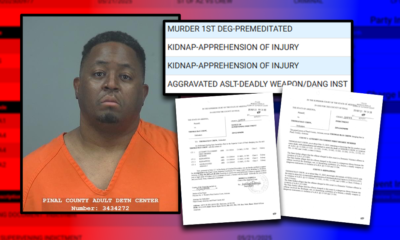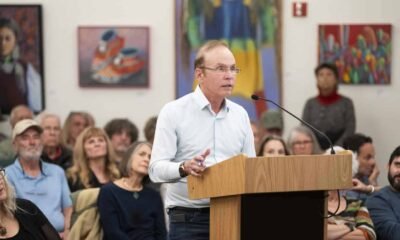college
College Protestors Face Potential Charges for Overnight Campus Encampments

Arizona lawmakers are gearing up to pass House Bill 2880, which aims to outlaw overnight encampments at community colleges and universities statewide. The proposed legislation is a direct response to recent antisemitic protests that have stirred controversy and concern about campus safety.
The bill prohibits the establishment of temporary shelters, including tents, intended for overnight use or extended stays. Its primary proponent, Representative Alma Hernandez, D-Tucson, stressed that the measure arose after pro-Palestinian protests at Arizona State University last year left some Jewish students feeling threatened.
Critics argue that the bill’s language is “unconstitutionally vague.” They contend that while it explicitly bans multi-day encampments, the broader implications are unclear. Representative Analise Ortiz, D-Phoenix, noted that the undefined term “prolonged” could criminalize legitimate student activities, such as cultural celebrations or political organizing.
“Students could face charges for setting up structures that aren’t overnight shelters,” Ortiz warned, tapping into concerns about potential overreach. The vagueness also raises questions regarding community events, like farmers’ markets, which could be impacted.
Despite such concerns, Senator John Kavanagh, R-Fountain Hills, defended HB2880, asserting that it targets only non-transient encampments. He emphasized that the problem lies with encampments that disrupt the use of public spaces by other students, particularly in light of reported incidents of antisemitic intimidation.
Ortiz countered Kavanagh’s perspective, arguing that if the legislation is solely geared toward overnight camping, then it should not include ambiguous language. This back-and-forth reflects deeper tensions about the balance between campus freedom and safety.
Some lawmakers question whether the bill could excessively limit legitimate student activities. Representative Kevin Payne, R-Peoria, dismissed the idea that it would affect lawful events, while Senator Lauren Kuby, D-Tempe, cautioned against imposing restrictions on campuses known for fostering public discourse and political dissent.
Kuby referenced her experiences during the 1970s campus protests in Chicago as evidence that such spaces must remain open for dialogue. She criticized the bill as an unnecessary political maneuver that threatens student rights.
Moreover, existing laws already allow universities to impose reasonable, neutral restrictions on speech. However, HB2880 appears to impose stricter penalties, mandating university officials to dismantle encampments and report non-compliant participants to law enforcement.
Hernandez maintains that the legislation does not stifle protests but focuses on eliminating potentially hazardous structures. “This is to ensure we are creating a safe environment for all students,” she stated, reinforcing her commitment to campus safety.
The Senate is expected to hold a roll-call vote on HB2880 next week, having already passed the House with a 41-17 majority. Both proponents and opponents continue to voice their concerns as this contentious bill moves through the legislative process.


















